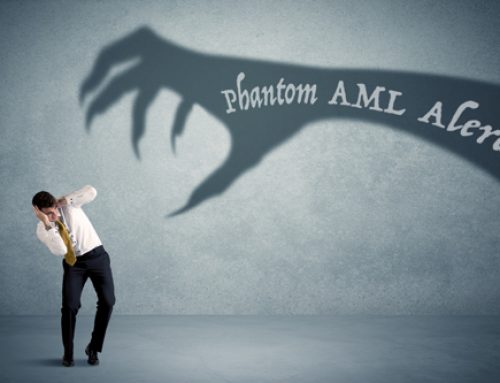 As anyone who has lived since the invention of the Atari knows, technology is changing at a rapid pace. Because of this, financial institutions have been thrust into the race to update their technology. Winning this race is crucial to maintaining and increasing customer size and satisfaction. This is especially true of interbank collection and return processes.
As anyone who has lived since the invention of the Atari knows, technology is changing at a rapid pace. Because of this, financial institutions have been thrust into the race to update their technology. Winning this race is crucial to maintaining and increasing customer size and satisfaction. This is especially true of interbank collection and return processes.
For years the federal reserve board has been trying to encourage the banking industry to move to fully electronic interbank check collection and return processes. Following on the heels of an advanced notice of proposed rulemaking issued by the Fed in March 2011, the Fed has finally issued a proposed rule concerning the forward collection and return of checks. Subpart C of Regulation CC addresses the timing of the collection and return of checks, including expeditious return responsibilities for paying and returning banks, the authorization to send returns directly to depository banks, the notification of nonpayment of large-dollar returned items, the standards for check endorsements, and the specifications for same-day settlement of checks presented to the paying bank.
This proposed rule request comments on two routes for processing electronic check returns. Alternative 1 would eliminate the current expeditious-return requirement imposed on paying banks. A paying bank returning a check would be required to provide the depository bank with a notice of nonpayment regardless of the amount of the check, but only if the paying bank sends the check in paper format. Under Alternative 2, the current two-day test for expeditious returns would be retained for checks being returned to a depository bank electronically through another bank, but the notice of nonpayment requirement would be eliminated. The same-day settlement rule for paper checks would not change. Lastly, the Fed is requesting comments on whether the existing Reg. CC warranties should be applied to electronically collected checks, as well as seeking comments on new warranties and indemnities for electronically collected checks and electronically created items.
A. Operational Issues
Return Requirements
The proposed changes to the check return process are intended to recognize that with today’s electronic environment requiring the expeditious return of paper checks imposes substantial costs on those banks returning the paper checks.
Proposed Alternative 1 would:
- Eliminate the expeditious-return requirement imposed on paying and returning banks;
- Retain the requirement that paying banks be subject to the midnight deadline for returning both paper and electronic checks;
- Retain the requirement that returning banks use ordinary care when returning checks;
- Require paying banks that return paper checks provide notice of nonpayment to the depository bank by 2 pm (versus the current requirement of 4 pm) on the second business day following presentation to the paying bank, regardless of the amount of the check; and
- Eliminate the notice of nonpayment for paying banks that return checks electronically.
Proposed Alternative 2 would:
- Retain the current rule that requires a returned check reach the depository bank within a specified timeframe;
- Require a paying bank that decides to return a check do so in a manner so that the check would be received by the depository bank by 2 pm on the second day following the day on which the check was presented to the paying bank;
- Eliminate the current forward-collection test and the four-day test and retain only the two-day test for expeditious returns;
- Eliminate the expeditious return requirement for paying banks in situations where the bank does not have an agreement to send electronic returns either directly to the depository bank or to a returning bank that is subject to the expeditious return requirement;
- Eliminate the expeditious return requirement for returning banks if they do not have an agreement to send electronic returned checks to the depository bank and the returning bank has not otherwise agreed to handle the check expeditiously; and
- Eliminate the notice of nonpayment for all returned checks.
The Fed has asked for comments, due by May 2, 2014, on which of the two alternatives is preferred.
B. Framework for Electronic Checks and Electronic Returned Checks
The Fed is also proposing to revise the framework for the collection and return of electronic checks as the current provisions of Reg. CC relate only to paper checks. The proposed changes would:
- Treat electronic images and electronic information as checks, unless other terms have been agreed to by the sending and receiving bank;
- Apply Check-21-like warranties to electronic images and electronic information, including the returned-check warranties; the warranty of notice of nonpayment as identified in Alternative 1, warranty and associated offset provisions for settlement amounts and encoding, and transfer and presentment warranties related to remotely-created checks;
- Require a bank that sends electronically-created items to indemnify subsequent transferees for losses if the item was not derived from a paper check; and
- Create a new indemnity for depository banks that receive a deposit of an original paper check that is returned unpaid because the check was previously deposited (and paid) using a remote deposit capture service.
Whichever track ends up being chosen, these proposals indicate that the regulatory agencies are serious about utilizing current electronic capabilities. These changes will bring financial institutions one step closer to the technology finish line—not that there will ever be one!




